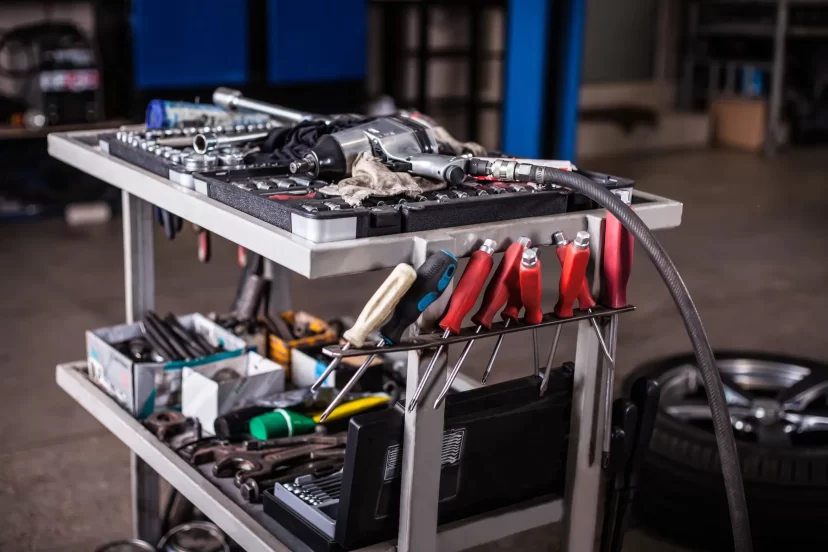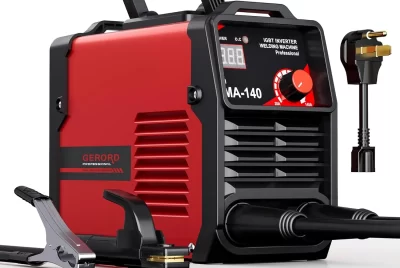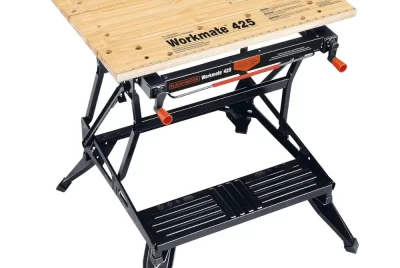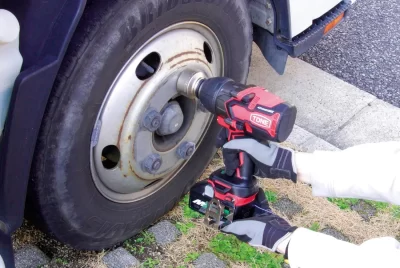How to Maintain Your Tools: Suggestions and Reasons
Whether you are a DIY enthusiast or a professional, how to maintain your tools properly is essential for their longevity and efficient performance. In this article, I will share some valuable suggestions and reasons for properly maintaining and caring for your garage tools.
Regular cleaning and maintenance
One of the fundamental aspects of tool care is regular cleaning after each use. By removing dust, dirt, and debris, you ensure that your tools remain in optimal condition. After completing a project, take the time to clean your tools thoroughly. Use a soft brush or cloth to remove any visible dirt and grime. For stubborn stains or grease, you can use mild soapy water or specialized cleaning products.
Lubricating the moving parts of your tools is another crucial step in maintenance. Apply a suitable lubricant to hinges, joints, and other movable components to prevent rusting and ensure smooth operation. Regular lubrication not only extends the life of your tools but also enhances their performance.
Additionally, it’s important to inspect your tools for wear and tear. Check handles, grips, and cables for any signs of damage. Replace any worn-out or damaged parts promptly to prevent further issues. By addressing wear and tear in a timely manner, you can avoid accidents and maintain the efficiency of your tools.
Proper storage to prevent damage
Effective storage plays a vital role in preserving the quality and functionality of your garage tools. To keep your tools organized, consider using a toolbox or a pegboard. This helps prevent tools from getting misplaced or damaged. Group similar tools together for ease of use and quicker access.
For portable tools, invest in protective cases or bags. These cases provide an extra layer of protection during transportation and storage. They help guard against impacts, moisture, and dust, ensuring that your tools remain in top condition.
It’s essential to store your tools in a dry and temperature-controlled environment. Moisture and extreme temperatures can lead to rust and deterioration. Consider using a dehumidifier or desiccant pack to control humidity levels in your garage. Protecting your tools from harsh environmental conditions will significantly extend their lifespan.
Sharpening and honing cutting tools
Maintaining sharp cutting tools is crucial for achieving accurate results and reducing effort during projects. Blunt tools not only compromise the quality of your work but can also cause accidents. Regularly inspect the cutting edges of your tools and sharpen them as needed.
There are various sharpening techniques, such as using a whetstone, honing guide, or sharpening jig. Choose the method that is most suitable for the type of tool you are sharpening. Remember to follow the proper angle and technique specific to each tool. Sharpening your tools with care will ensure their optimal performance.
Apart from sharpening, honing the cutting tools is equally important. Honing helps maintain the sharpness of the edges between sharpening sessions. It involves using a honing stone or a strop to realign the microscopic cutting edge. Make honing a regular practice to keep your tools consistently sharp.
Rust prevention and removal
Rust is a common enemy of garage tools, as it compromises their functionality and appearance. To prevent rust formation, make sure your tools are clean and dry before storage. Remove any moisture on the surfaces and apply a thin layer of rust-prevention oil or spray. These products create a protective barrier, inhibiting the formation of rust.
If you discover rust on your tools, it’s crucial to address it promptly. Start by gently scrubbing the affected area with a wire brush or abrasive pad. You can also use rust dissolvers or homemade remedies like vinegar or lemon juice to remove light rust. For stubborn rust, consider using rust converter products or consult a professional for assistance.
Periodic inspections and servicing
Regular inspections are essential to identify any potential issues with your tools. Check for loose or damaged parts, such as screws, nuts, or cords. Tighten loose connections and replace any damaged components promptly. By addressing these issues early on, you prevent further damage and ensure the safety of your tools.
Some complex tools may require periodic servicing by professionals. These tools often have intricate mechanisms that need expert attention. Be proactive in seeking professional servicing, especially if you notice any unusual noises, vibrations, or decreased performance. Regular maintenance and servicing will keep your tools operating at their best.
Safety precautions and usage guidelines
While maintaining and caring for your garage tools, it is crucial to prioritize safety. Always read and follow the manufacturer’s instructions and guidelines for each tool. They provide valuable insights into proper usage and maintenance. Ignoring safety instructions can lead to accidents or damage to your tools.
Additionally, wearing appropriate safety gear is essential to protect yourself while using tools. Safety glasses, gloves, ear protection, and dust masks are some common safety gear items to consider. These precautions minimize the risk of injuries and ensure a safe working environment.
Lastly, use your tools for their intended purpose. Using tools improperly or for tasks beyond their capabilities can lead to accidents or tool damage. Understand the limitations of each tool and seek alternative solutions if necessary. Proper usage ensures both your safety and the longevity of your tools.
Conclusion
Proper maintenance and care of your garage tools are crucial for their longevity and performance. Regular cleaning, lubrication, and inspections help keep your tools in optimal condition. Proper storage, sharpening, and rust prevention contribute to their durability. By following safety precautions and guidelines, you ensure a safe working environment. Remember, a well-maintained tool not only serves you better but also saves you time and money in the long run.
FAQs (Frequently Asked Questions)
1. How often should I clean my garage tools?
It is recommended to clean your garage tools after each use to remove dirt and debris that can affect their performance and longevity.
2. Can I use any lubricant on my tools?
No, it’s important to use lubricants specifically designed for tools. Using the wrong lubricant may cause damage or affect their functionality.
3. How frequently should I sharpen my cutting tools?
It is a lot easier to sharpen a cutting tool just after every use than to wait until it does not cut at all. In the first case, it will take you little time and effort. Whereas in the second case, the job will be a lot more difficult.
4. Why is there a need to organize the tools?
By tidying up the space and implementing a tool organization strategy, workers can easily find and put back tools as they work through the manufacturing process. Save money: Tools can get easily misplaced or lost in a disorganized workplace leading to purchasing unnecessary duplicates and replacements.
5. How do I clean and organize my garage?
1. Declutter the Ground and Tables. Before you start on anything else, first declutter your ground. …
2. Clean All Surfaces. …
3. Sort Through Everything. …
4. Divide and Conquer. …
5. Put in Shelves, Hooks, and More.




